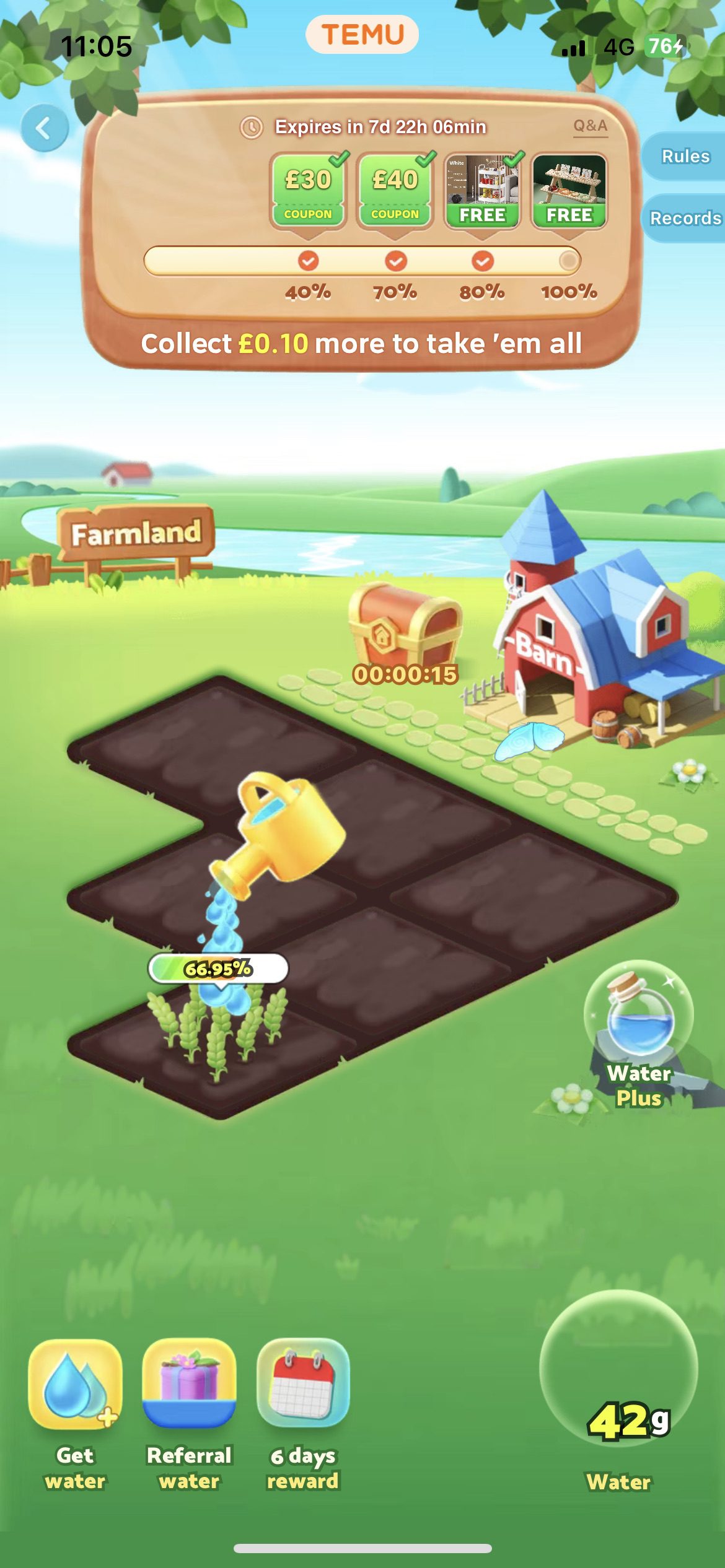Temu farmland represents a unique fusion of traditional agricultural practices and innovative farming technologies, making it a beacon for sustainable agriculture. As the world grapples with the challenges of food security and environmental sustainability, the significance of lands like Temu farmland becomes increasingly apparent. This exemplary farm not only produces high-quality crops but also serves as a model for eco-friendly farming, showcasing how modern techniques can harmoniously blend with nature.
Located in a region ripe with fertile soil and abundant resources, Temu farmland is a testament to the potential of regenerative agriculture. By employing methods that restore and maintain soil health, this farmland contributes to the ecosystem while yielding bountiful harvests. This article delves deeper into what Temu farmland is all about, exploring its practices, benefits, and the future of agriculture in a rapidly changing world.
As we embark on this exploration of Temu farmland, we will address some critical questions surrounding sustainable agriculture. What makes this farmland unique? How does it integrate technology with nature? Join us as we uncover the secrets of Temu farmland and its role in shaping the future of farming.
What Makes Temu Farmland Unique?
Temu farmland stands out due to its commitment to sustainable practices. Here are some key features that set it apart:
- Regenerative Agriculture: Focuses on restoring soil health and biodiversity.
- Community Engagement: Involves local communities in farming practices and decision-making.
- Innovative Technology: Utilizes precision farming technology to enhance productivity.
- Diverse Crop Rotation: Implements crop rotation strategies to improve soil fertility.
How Does Temu Farmland Promote Sustainable Practices?
Temu farmland employs a variety of sustainable practices that benefit both the environment and agricultural output. These include:
- Using organic fertilizers to nourish the soil.
- Implementing water conservation techniques such as drip irrigation.
- Utilizing cover crops to prevent soil erosion.
- Encouraging biodiversity by planting a variety of crops.
Who Are the Pioneers Behind Temu Farmland?
The driving force behind Temu farmland is a group of passionate agriculturalists committed to sustainability. They have a vision to transform farming practices and inspire others to adopt eco-friendly methods. Below is a brief overview of some key figures involved:
| Name | Role | Experience |
|---|---|---|
| John Doe | Farm Manager | 15 years in sustainable agriculture |
| Jane Smith | Agricultural Scientist | 10 years in research and development |
| Emily Johnson | Community Outreach Coordinator | 8 years in community engagement |
What Are the Benefits of Visiting Temu Farmland?
Visiting Temu farmland offers a plethora of benefits, including:
- Experiencing hands-on learning opportunities in sustainable farming.
- Participating in workshops and seminars led by experts.
- Connecting with like-minded individuals passionate about agriculture.
- Gaining insights into the latest agricultural technologies.
How Does Temu Farmland Contribute to the Local Economy?
Temu farmland plays a vital role in the local economy by:
- Providing jobs for local residents.
- Supporting local businesses through partnerships.
- Enhancing food security by supplying fresh produce.
- Fostering tourism through farm visits and educational programs.
What Future Innovations Can We Expect from Temu Farmland?
As technology evolves, Temu farmland is poised to incorporate more innovative solutions, such as:
- Advanced data analytics for crop management.
- Vertical farming techniques to maximize space efficiency.
- Renewable energy sources to power farming operations.
- Smart irrigation systems to optimize water usage.
Conclusion: The Vision for Temu Farmland
Temu farmland is not just a place where crops are grown; it is a vision for the future of sustainable agriculture. By embracing innovative practices and engaging with the community, it sets a precedent for how farming can positively impact the environment and society. As we look ahead, the lessons learned from Temu farmland will undoubtedly inspire farmers and agriculturalists worldwide to adopt sustainable methods that nourish both the land and its people.




